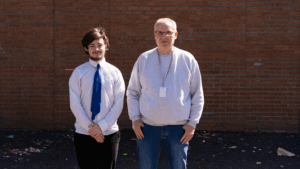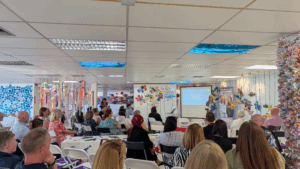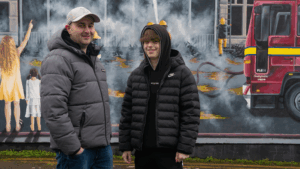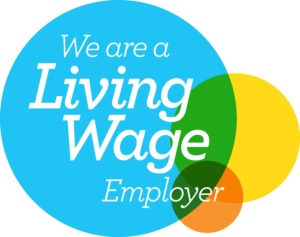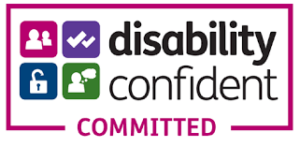Family troubles saw Nicole Quinn taken into foster care at the age of 13. She was able to return home after being “looked after” for a year, but her life and education were derailed again by a family tragedy by the time she was 15. She isn’t willing to go into details, but it left her perilously close to becoming a statistic – joining the ranks of care-leavers in Scotland whose educational and life outcomes are poor. Not least of these is the fact that only 2 per cent make it to higher education compared with a national average of 37 per cent.
Depressed and troubled, Nicole didn’t attend school for more than nine months. For five of those she effectively lived in her bedroom, unable or unwilling to come out. “I unofficially left school. I felt I couldn’t cope and didn’t trust anybody any more,” she explains. “I was sitting in my room all day, scared to walk out the door. I didn’t even speak to my family, and I didn’t go to school for about nine months. I spent five months more or less ‘locked’ in my room.”
As with many young people who do not attend school, her truancy became self-reinforcing. “I felt ‘I’ve left school now, I can’t go back,’” Nicole recalls. But one person kept trying to get through to her. Donna Cunningham had already been seeing Nicole in a mentoring capacity at her school, and – unable to speak to her – she kept sending letters encouraging Nicole to return. “I had seen her in school a few times and spoke to her about my problems. She understood me more than everybody else,” Nicole says. Nevertheless, for a long time Donna’s efforts appeared to be fruitless. Nicole received the letters she was sending, but though she opened them and read them they didn’t make any difference. She didn’t respond for months. She decided all she could do was hang in there.
“The work of a mentor is building a relationship with a person, although it is fundamentally important to try and build a relationship with parents and carers as well,” Donna says. She is one of the pioneer mentors with the MCR Foundation’s Pathways scheme, which is currently trying to recruit 200 new mentors in the Glasgow area, in a campaign backed by The Herald. Already working in five secondary schools in a deprived part of the city, Pathways aims to give young people who lack the impetus, support or confidence to think about higher education a guide who can help them see and develop their own potential.
The theory is that pathways into further and higher education, although open to all, are virtually invisible to some young people. Mentors can help them overcome such invisible barriers. “It is about the power of saying ‘this isn’t my job. It is what I want to do. I choose to be part of your life and I want to help you,’” Donna explains.
The foundation says MCR stands for motivation, commitment and resilience, and it was perhaps the latter quality that helped Donna reach Nicole. “It wasn’t so much frustrating, but I know her potential and when she didn’t respond to my letters I was certainly disappointed,” Donna says. “I was going back through past conversations thinking ‘OK, that tack didn’t work, what can I try now? I was thinking ‘come on’, I know what is in there and I’m going to get to you.” She was determined Nicole realised she wasn’t going away, she says. “It was a case of thinking: Everything’s stopped. Where do we pick this up again? How do I get her out of the door?”
Nicole may not have been responding but it turned out she was listening. “After a few letters, I started to feel ‘she does actually believe in me’,” she admits now. “Gradually, over time, I got back to engaging with her, then other people and ultimately back into learning as well.” Donna urged Nicole to do an MCR Foundations course for those who have missed out on education, and she also did a course with Action for Children. That charity later gave her one of its Women of Influence awards. “After that I just did one course after another. Planning a career seemed far-fetched as I was never at school, but Donna always believed in me,” Nicole adds. “She sent me the forms and when I went on the first course, she would come out every week to see that I was there. “Since then I’ve not stopped, and now I’ve just been accepted into the third year of a health and social care course at Glasgow Kelvin College.” She now hopes to go on to university and pursue a career in addiction counselling. “I want to help people the way I was helped,” Nicole explains. Her horizons have opened up in a wider way, too. She’d like to move to Australia one day, she says, for a fresh start and because she thinks she would love the lifestyle there. “People think if you leave school you have no ambitions in life, but they don’t look at why. Donna gave me a chance.”
Meanwhile she will always be grateful for the role her mentor has played, she says. She and Donna continue to meet up from time to time. “It hasn’t just affected me. My mum and other members of my family have changed their lives a lot too,” Nicola says. “My Mum goes to body combat classes with me, and we are more of a family generally. They are proud of me and want to make me proud of them.” The Herald is currently supporting MCR Foundations bid to recruit more mentors. Mentoring can make a huge difference to young people, Nicole believes: “Sometimes within your family the help you can get is limited – because your relatives maybe face the same problems as you do. “But when someone comes from outside and says I want to spend time with you and believe in you, it gives you a warm feeling. It is life changing.”
